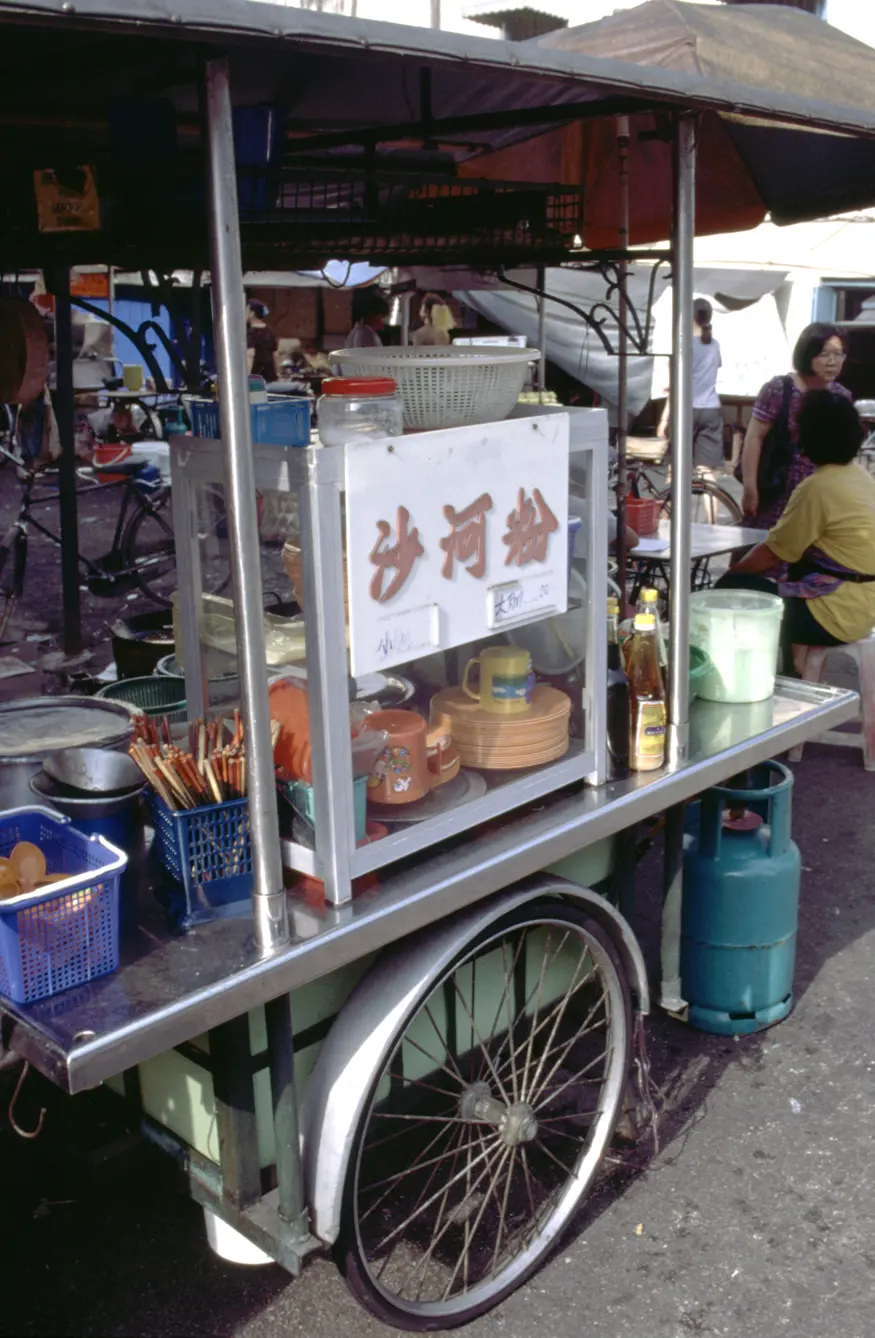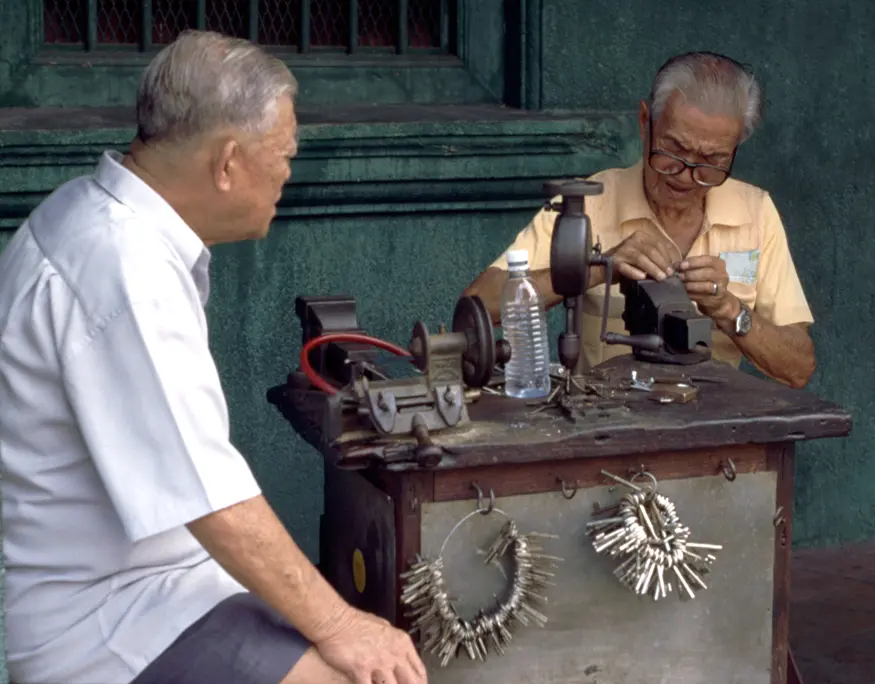Post from Tim:
We entered Penang on an all-night bus from the west coast town of Kota Bahru. I awoke to the noise of activity as people packed bags to leave and the driver shouted that we had arrived. My head felt thick with sleep. My shirt advertised this condition with a large blotch of drool centered on my chest. My blurry eyes read the time as 5:00 AM. I stumbled off the bus with the rest of the crowd.
The locals quickly went their own way, leaving us with a small group of dazed backpackers that had gathered on the curb and were trying to pinpoint their location on the Lonely Planet guide map. The conversation drifted to places to stay. One member of the group had a "great recommendation". The rest of the crowd decided to follow.
Few vehicles passed by us in these predawn hours. Nothing broke the silence but the occasional rev of a small motorcycle. Streetlights cast a sepia tone hue over the scene. Our group forged ahead like eight crazed villagers in a Frankenstein movie, holding our guidebooks up like torches.
We reached the castle gates of the guesthouse, but the castle's rolled steel doors were closed for the night. "Bang, bang, bang!" Our knocking echoed inside the building and woke up the proprietor, who looked with shocked confusion at the large group of people standing out front. Luckily, we all got rooms and slept the bus ride off until a more decent hour. When we woke up, the streets had filled with color and activity.
For better or worse, Penang is the cultural opposite of Kota Bahru. Kota Bahru's population is homogeneously Malay and Muslim. Residents appear in public with covered heads, attitudes are conservative, and people are reserved. In comparison, Penang's British founders gave the city an international feel similar to its neighboring cities of Kuala Lumpur and Singapore (on a much smaller level). The indigenous Malay culture in Penang mixes heavily with Chinese, Indian, and British influences.
We stayed in the center of Chinatown and walked the city all day, soaking in the views of crumbly old buildings with shops selling Indian textiles and Chinese medicines, trishaw drivers who ply the streets looking for fares, street side noodle vendors stirring vats of broth, and old Chinese men sitting in the shadows watching life go by.
The locals quickly went their own way, leaving us with a small group of dazed backpackers that had gathered on the curb and were trying to pinpoint their location on the Lonely Planet guide map. The conversation drifted to places to stay. One member of the group had a "great recommendation". The rest of the crowd decided to follow.
Few vehicles passed by us in these predawn hours. Nothing broke the silence but the occasional rev of a small motorcycle. Streetlights cast a sepia tone hue over the scene. Our group forged ahead like eight crazed villagers in a Frankenstein movie, holding our guidebooks up like torches.
We reached the castle gates of the guesthouse, but the castle's rolled steel doors were closed for the night. "Bang, bang, bang!" Our knocking echoed inside the building and woke up the proprietor, who looked with shocked confusion at the large group of people standing out front. Luckily, we all got rooms and slept the bus ride off until a more decent hour. When we woke up, the streets had filled with color and activity.
For better or worse, Penang is the cultural opposite of Kota Bahru. Kota Bahru's population is homogeneously Malay and Muslim. Residents appear in public with covered heads, attitudes are conservative, and people are reserved. In comparison, Penang's British founders gave the city an international feel similar to its neighboring cities of Kuala Lumpur and Singapore (on a much smaller level). The indigenous Malay culture in Penang mixes heavily with Chinese, Indian, and British influences.
We stayed in the center of Chinatown and walked the city all day, soaking in the views of crumbly old buildings with shops selling Indian textiles and Chinese medicines, trishaw drivers who ply the streets looking for fares, street side noodle vendors stirring vats of broth, and old Chinese men sitting in the shadows watching life go by.
Photos From This Location

